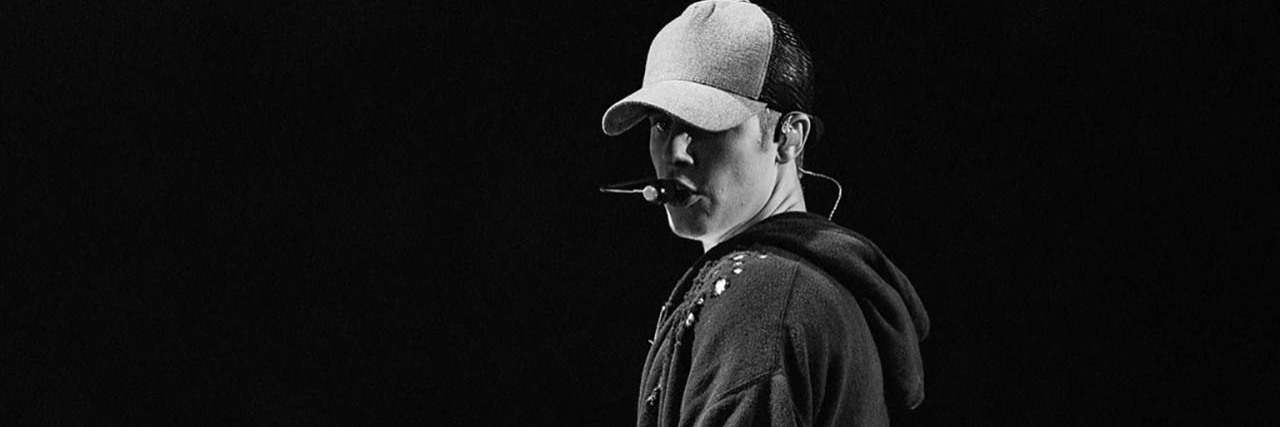Why We Shouldn’t Call This Part of Justin Bieber’s Xanax Abuse Recovery ‘Extraordinary’
Sometimes the news isn’t as straightforward as it’s made to seem. Juliette Virzi, The Mighty’s mental health editor, explains what to keep in mind if you see this topic or similar stories in your newsfeed. This is The Mighty Takeaway.
From premarital celibacy to the “hard” realities of marriage, Vogue’s feature on newlyweds Justin and Hailey Bieber (formerly Baldwin) is causing quite a stir.
One of the most-talked-about aspects of the interview was when Justin revealed his struggle with abusing the prescription medication, Xanax. He told Vogue:
I found myself doing things that I was so ashamed of, being super-promiscuous and stuff, and I think I used Xanax because I was so ashamed. My mom always said to treat women with respect. For me that was always in my head while I was doing it, so I could never enjoy it. Drugs put a screen between me and what I was doing. It got pretty dark. I think there were times when my security was coming in late at night to check my pulse and see if I was still breathing.
Justin’s recovery was largely due to the intervention of Hillsong Church NYC pastor and friend Carl Lentz. The pastor asked Justin to move in with his family for an “informal detox,” including sports, an internship with the church and refocusing on his faith. Since that period of time, Bieber hasn’t misused drugs, though he still drinks alcohol in social settings.
But what most coverage of the interview missed was Hailey’s problematic comments about the way Justin recovered. Though seemingly loving and supportive, her comments have damaging implications for the addiction community.
“I’m really proud of him. To do it without a program, and to stick with it without a sober coach or AA or classes — I think it’s extraordinary,” Hailey told Vogue. “He is, in ways, a walking miracle.”
Hailey likely meant no harm by her comment. Highlighting her words isn’t about picking her apart, it’s about shedding light on why the way we talk about sensitive topics, like substance abuse, matters.
Now let me be clear, recovery from addiction or struggle with substances is extraordinary. Let’s not discount that. But Hailey didn’t say his recovery was extraordinary, she said the fact that recovered without resources was extraordinary.
While it might seem like a small distinction to make, glorifying recovery without professional support sends a problematic message to people who do need professional help in recovery.
This is something the National Eating Disorders Association (NEDA) addresses in their “Guidelines for Sharing Your Story Publicly.” Though there’s some debate over whether or not eating disorders should be categorized as addictions, research has shown there are several similarities between eating disorders and addictive conditions.
For those who choose to openly share their recovery stories, NEDA warns against stories that glorify recovering without trained professionals.
Be careful about providing testimony of how you ‘bravely fought this illness alone.’ Perhaps you did, but most do not – the vast majority of those who recover from their illness do it only with the ongoing help of trained professionals… Make sure you reinforce that it is courageous and necessary to reach out for support and guidance during the recovery process.
Recovering from any mental health struggle is hard, and most often takes the support of loved ones and trained professionals. Needing help to recover is more than OK.
If you or a loved one is affected by addiction and need help, you can call SAMHSA‘s hotline at 1-800-662-4357. To connect with others in The Mighty community who have faced addiction challenges, download our free app and post a Thought or Question with the hashtag, #Addiction.
Image via Creative Commons/NRK P3

